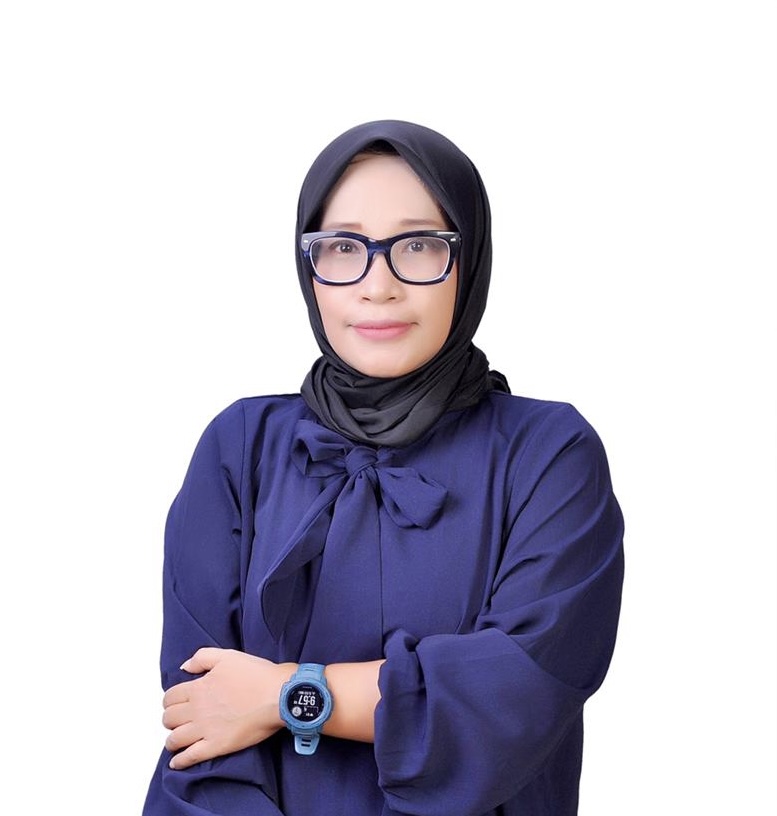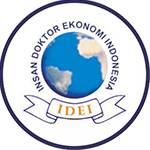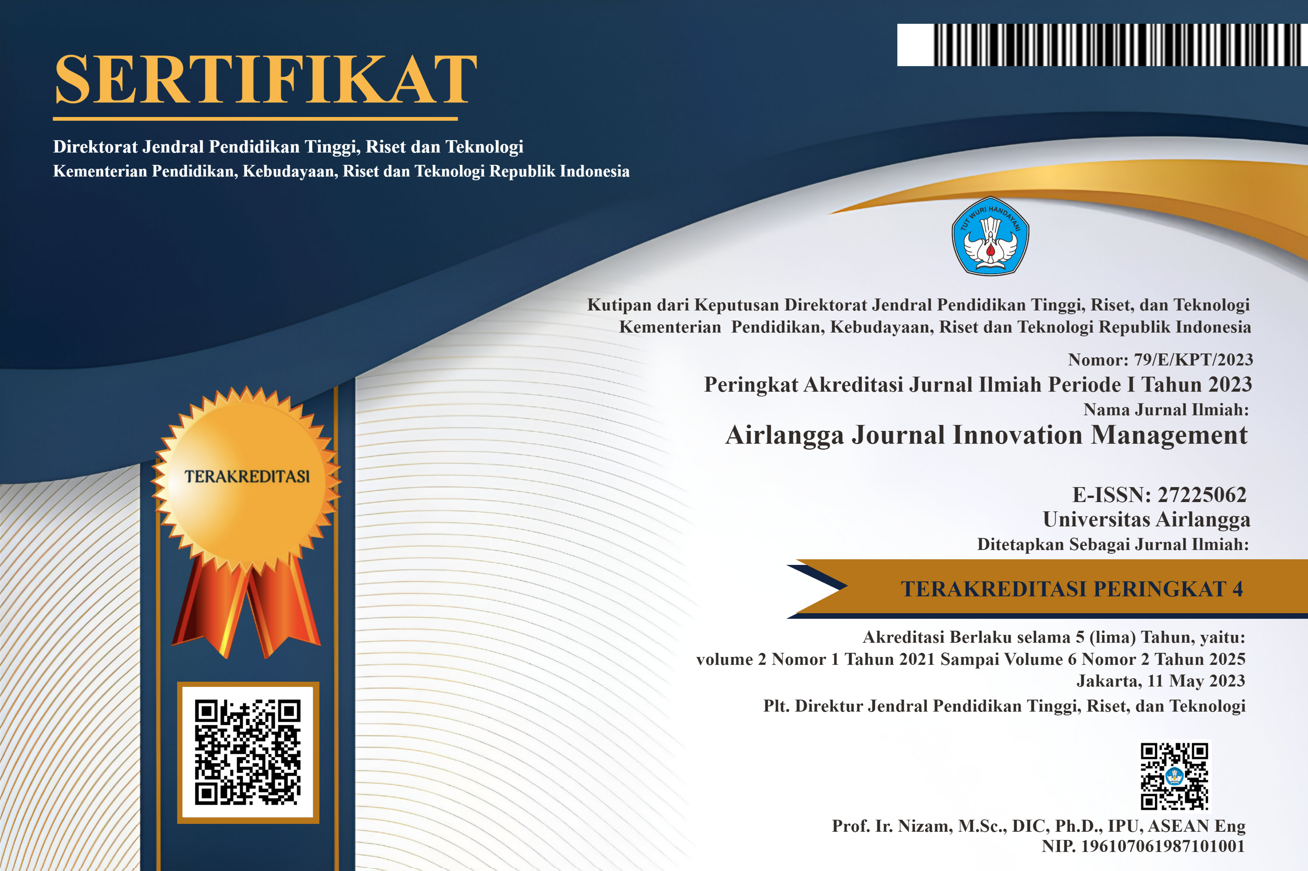The Effectiveness Analysis of Dompet Dhuafa Ekselensia Tahfizh School: Evaluating Educational and Management Performance
Downloads
Ekselensia Tahfizh School (e-Tahfizh) is a human resource development program with a focus on memorizing Al-Qur'an, dirasah Islamiyah, and leadership under the auspices of the Lembaga Amil Zakat (LAZ) Dompet Dhuafa. This study aims to determine the extent to which the effectiveness of the e-Tahfizh program in helping beneficiaries feel a change in welfare in their lives. This study uses a quantitative and descriptive qualitative approach with a random sample technique and data collection through interviews and questionnaires to 28 alumni, as well as applying the CIBEST model and T-test to measure changes in spiritual well-being before and after undergoing program coaching. The results showed that the program was effective, where the spiritual well-being index increased from 75% to 82.14% before and after becoming an alumnus of the e-Tahfizh program. In addition, the t-test also showed statistical significance with a p-value of 0.022 (one-way) and 0.044 (two-way), so the statistical test results were declared significant because they were smaller than 0.05. The practical implications of this research show that ZISWAF-based education could improve the spiritual welfare of underprivileged communities. The e-Tahfizh model could expand access to Islamic education and optimize the role of ZISWAF in human resource development. Dompet Dhuafa continues to encourage evaluation to improve program quality and expand access to Islamic values-based education.
ALAM, A., RATNASARI, R. T., PRASETYO, A., RYANDONO, M. N. H., & SHOLIHAH, U. (2024). Systematic Literature Review on Zakat Distribution Studies as Islamic Social Fund. Journal of Distribution Science, 22(2), 21–30.
Alam, A., Ratnasari, R. T., Ryandono, M. N. H., Prasetyo, A., Santosa, I. W. M., & Bafana, F. A. (2023). Systematic literature review on Malaysia Zakat studies (2011-2023). Multidisciplinary Reviews, 6(4), 2023044.
BAZNAS. (2022). Outlook Zakat Indonesia 2022 (Vol. 21, Issue 1).
Beik, I. S., & Arsyianti, L. D. (2015). Construction of CIBEST model as measurement of poverty and welfare indices from Islamic perspective. Al-Iqtishad: Jurnal Ilmu Ekonomi Syariah, 7(1), 87–104.
Beik, I. S., & Arsyianti, L. D. (2016). Measuring Zakat Impact on Poverty and Welfare Using Cibest Model. Journal of Islamic Monetary Economics and Finance, 1(2), 141–160. https://doi.org/10.21098/jimf.v1i2.524
Choiriyah, E. A. N., Kafi, A., Hikmah, I. F., & Indrawan, I. W. (2020). Zakat and Poverty Alleviation in Indonesia: a Panel Analysis At Provincial Level. Journal of Islamic Monetary Economics and Finance, 6(4), 811–832. https://doi.org/10.21098/jimf.v6i4.1122
Dwi Lestari, & Nur Azlia Arumi. (2024). Factors that influence the Islamic Perspective Human Development Index as Evidence of the Development of the Muslim Community. Journal of Lslamic Economics and Bussines Ethics, 1(2), 75–93. https://doi.org/10.24235/jiesbi.v1i2.133
Fauzi, Q., Ulfah, U., & Wijayanti, I. (2024). Ethical challenges in transportation: A study on the implementation of Islamic business values. Al-Uqud: Journal of Islamic Economics, 8(2).
Fauziana, H., Wardhana, A. K., & Rusgianto, S. (2022). The Effect of Education, Income, Unemployment, and Poverty toward the Gini Ratio in Member of OIC Countries. Daengku: Journal of Humanities and Social Sciences Innovation, 2(2), 181–191.
Febriani, M. (n.d.). Strategi Penghimpunan Dan Penyaluran Dana Zakat Pada Program Pendidikan Etos Id Di Lpi Dompet Dhuafa Bogor. Fakultas Ilmu Dakwah Dan Ilmu Komunikasi UIN Syarif Hidayatullah.
Febriyanti, A. R., Ratnasari, R. T., & Wardhana, A. K. (2022). The Effect of Economic Growth, Agricultural Land, and Trade Openness Moderated By Population Density on Deforestation in OIC Countries. Quantitative Economics and Management Studies, 3(2).
Fitriyanti, N., & Kulsum, U. (2024). Penggunaan Komunikasi Interpersonal Guru Dalam Membentuk Karakter Religius Anak Usia Dini Pada Kelompok B di Tk Dharma Wanita Persatuan Waru Sidoarjo. JOURNAL OF EARLY CHILDHOOD EDUCATION STUDIES, 4(1), 1–32.
Ghifara, A. S., Iman, A. N., Wardhana, A. K., Rusgianto, S., & Ratnasari, R. T. (2022). The Effect of Economic Growth, Government Spending, and Human Development Index toward Inequality of Income Distribution in the Metropolitan Cities in Indonesia. Daengku: Journal of Humanities and Social Sciences Innovation, 2(4), 529–536.
Iman, A. N., Sukmana, R., Ghifara, A. S., & Wardhana, A. K. (2022). The Effect of Zakat Collection, Company Age, and Company’s Total Assets on Financial Performance of Sharia Banking in Indonesia 2019-2020. Economic Education and Entrepreneurship Journal, 5(2), 217–224.
Ma’ruf, M., Irawati, S. N., Fitriyanti, N., & Wardhana, A. K. (2025). SOROGAN VS BANDONGAN AS METHOD OF ARABIC LANGUAGE TEACHING DAKWAH MODEL IN ISLAMIC BOARDING SCHOOL: A SYSTEMATIC LITERATURE REVIEW. Tanfidziya: Journal of Arabic Education, 4(02), 213–223.
Mendo, A. Y., Singh, S. K., Yantu, I., Hinelo, R., Bokingo, A. H., Dungga, E. F., Juanna, A., Wardhana, A. K., Niroula, B., & Win, T. (2023). Entrepreneurial leadership and global management of COVID-19: A bibliometric study. F1000Research, 12(31), 31.
Pratiwi, A. C., Wardhana, A. K., & Rusgianto, S. (2022). Application of Vector Error Correction Model on Macroeconomic Variables toward Changes in the Composite Stock Price Index. Daengku: Journal of Humanities and Social Sciences Innovation, 2(2), 219–229.
Puskas BAZNAS. (2021). Outlook Zakat Indonesia 2021. Pusat Kajian Strategis BAZNAS.
Qosim, N. (2016). Menjajaki Potensi Islamisasi Ilmu Ekonomi. EL-BANAT: Jurnal Pemikiran Dan Pendidikan Islam, 6(2), 129–142.
Qosim, N., Ratnasari, R. T., Wardhana, A. K., Fauziana, H., & Barkah, T. T. (2023). Eight Years of Research Related to the Green Sukuk in the Global Stock Exchange Market to Support the Implementation of SDG: A Bibliometric Review. Journal of Islamic Economic and Business Research, 3(2), 161–180.
Ridho, M., & Indah, F. (2020). Analisis Pengaruh Penganguran , Pertumbuhan Ekonomi ( PDRB ) Terha. Jurnal Ekonomi Dan Perbankan Syariah, 1–17.
Ryandono, M. N. H., Mawardi, I., Rani, L. N., Widiastuti, T., Ratnasari, R. T., & Wardhana, A. K. (2022). Trends of research topics related to Halal meat as a commodity between Scopus and Web of Science: A systematic review. F1000Research, 11(1562), 1562.
Santoso, T. B., & Kusuma, A. (2023). The Development of the Usage of Blockchain for Waqf and Zakat Globally: A Bibliometric Study. International Journal of Mechanical Computational and Manufacturing Research, 13(3), 83–91.
Wardhana, A. K. (2021). The Application of Waqf and Endowment Fund Based on the Principles in the Sharia Maqashid Pillar Society. Prosperity: Journal of Society and Empowerment, 1(2), 107–119. https://doi.org/10.21580/prosperity.2021.1.2.8829
Wardhana, A. K. (2023). Applying Islamic Leadership In Working Environment: A Bibliometric Study. Journal Human Resources 24/7: Business Management, 1(1), 25–32.
Wardhana, A. K., & Ratnasari, R. T. (2022). Impact of Agricultural Land and the Output of Agricultural Products Moderated with Internet Users toward the Total export of Agricultural Product in Three Islamic South East Asian Countries. Iqtishodia: Jurnal Ekonomi Syariah, 7(2), 11–20.
Wijayanti, I., & Ryandono, M. N. H. (2020). Zakat institutions’ mustahiq transformation in developing countries: Comparison study. Opcion, 36(S26), 350–366.
Wijayanti, I., Ryandono, M. N. H., & Petra, D. H. S. P. H. (2021). Financial Inclusion through Zakat Institution: Case Study in Indonesia and Brunei Darussalam. International Journal of Islamic Business and Economics (IJIBEC), 5(2), 128–140.
Zahra, T. P., & Auwalin, I. (2020). Pengaruh Zakat Infak Sedekah (Zis) Terhadap Pengangguran Di Indonesia: Metode Autoregressive Distributed Lag (Ardl). Jurnal Ekonomi Syariah Teori Dan Terapan, 7(2), 372. https://doi.org/10.20473/vol7iss20202pp372-388
Zulaikha, S., Hendratmi, A., Sridadi, A. R., Basit, A., Iman, A. N., Wardhana, A. K., Ghifara, A. S., Pratiwi, A. C., Febriyanti, A. R., & Nugroho, A. D. (n.d.). FILSAFAT EKONOMI ISLAM Menjawab Tantangan Peradaban. Zifatama Jawara.
Copyright (c) 2025 Airlangga Journal of Innovation Management

This work is licensed under a Creative Commons Attribution-NonCommercial-ShareAlike 4.0 International License.
- The journal allows authors to hold copyright without restrictions and retain publication rights without restrictions. The author retains the copyright and grants the first publication rights to the journal, with his work simultaneously licensed under the Creative Commons Attribution-NonCommercial-ShareAlike 4.0 International License (CC BY-NC-SA). This license allows others to share the work with acknowledgment of authorship and initial publication in this journal, provided that the work is not used for commercial purposes and that any derivative works must use the same license.
- Authors may enter into additional contractual agreements for non-exclusive distribution of the journal publication version (e.g., uploading it to an institutional repository or publishing it in book form), while still including acknowledgment of the initial publication in this journal.
- Authors are allowed and encouraged to upload their work online (e.g., in an institutional repository or personal website) before and during the submission process. This can support productive scientific exchanges as well as increase citations to published works.

AJIM by UNAIR is licensed under a Creative Commons Attribution-NonCommercial-ShareAlike 4.0 International License.





















